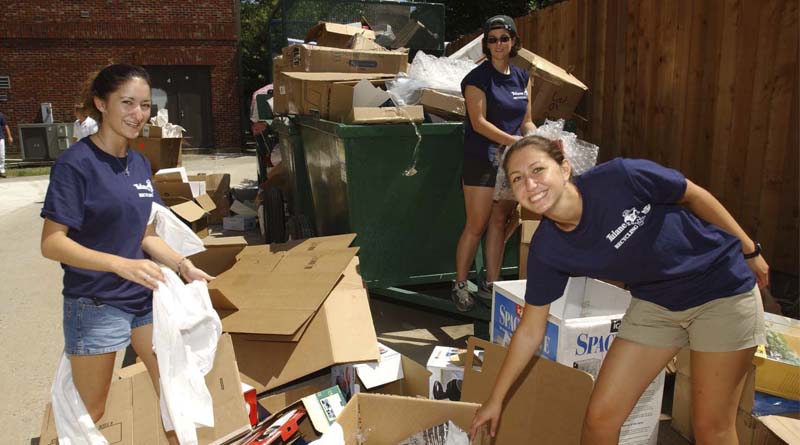By Rachel Leber
CHICAGO — For colleges and universities around the U.S., carbon neutral campuses are becoming a reality with the guidance and consult of JLL, a professional services firm and real estate company headquartered in Chicago. Between the environmental benefits and the significant cost savings that come from carbon neutrality, college campuses are signing up to work with JLL more and more over the past 10 years as an investment in their own resources and long-term well-being as healthy and environmentally-positive organizations.

Photo Credit: Nick Schweitzer
Most campuses are already on the road to basic environmental sustainability, according to Bob Best, head of energy and sustainability at JLL. Best explained that campuses nationwide are pursuing LEED certification status, campus recycling programs and bike-friendly campuses. However, becoming carbon neutral requires a different level of effort, according to Best, and this is how JLL steps into the picture with colleges. JLL offers consulting services to schools regarding the best way to effect positive change with regards to energy and sustainability, and how best to prioritize their sustainability goals within budget limitations.
The solutions that JLL recommends to colleges include a wide range of options, from the installation of sophisticated technologies that can monitor lighting, cooling and heating, to lower-cost and simpler “best practices” such as turning off lights in unoccupied spaces and turning down thermostats to different set points on a regular basis. According to Best, the top five ways that JLL helps colleges look at energy and financial savings is to start in areas of smart building technology, working with lighting (the installation of LED as well as lighting controls and sensors), waste management, clean energy (the use of solar arrays and other alternative energy sources) and encouraging campuses to engage in power purchase agreements. Daylighting in particular is a strategy that many college campuses have implemented for the positive impacts it has on student performance, according to Best, as there is proven research and studies that have proven this to be the case.
In addition to recommending and implementing environmentally sustainable solutions for college campuses, JLL consults organizations on the best way to be strategic and effective with their dollars. “One mistake colleges make is looking at one issue at a time. In some cases, campuses may be worrying about their lighting costs, when upon further investigation, it turns out their fans are not working properly,” said Best in a statement. “JLL looks at the whole picture, and then makes recommendations on the best way to implement solutions over the long-term.”

Photo Credit: Tulane Public Relations
While the pursuit of carbon neutrality requires both resources and commitment on the part of any organization, the benefits of converting to carbon-neutrality for college campuses is well worth the effort, according to Best. “Small steps can make a significant impact on a college or university’s overall journey to carbon neutrality,” said Best in a statement. “For example, a university in Boston found that it could save approximately $180,000 per year for each degree of overcooling that was corrected campus-wide, and that number rose to $290,000 per degree when overheating was corrected. These are significant results for modest, easy-to-implement steps toward the larger sustainability goal.”
While the benefits of carbon-neutrality are threefold — reduction of overall environmental footprint, significant cost savings and higher productivity of building occupants — the financial savings for campuses tend to be the greatest motivator, according to Best. “If you go to clients, and talk to them about climate change and saving the environment, you don’t get an audience. You need to change the message to properly motivate people,” Best said in a statement. “Save energy, and you will save money,” is the message that has people lining up at JLL’s door, according to Best. “Sustainability almost always makes economic sense if you do it correctly,” he said.


